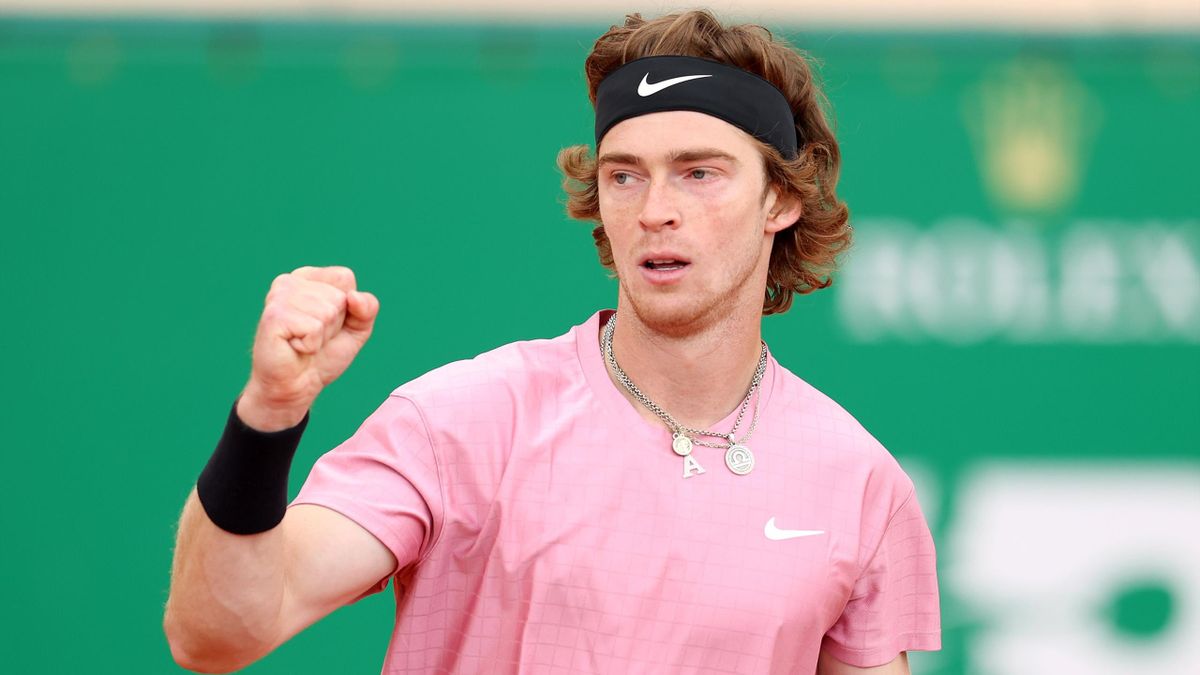Welcome to Tennis Elbow, the column that looks back on the week that was in the world of tennis. This week, Charles Blouin-Gascon recaps the 2021 Rolex Monte-Carlo Masters.
Did you catch it?
Late last week, we were witnesses, for those of us lucky enough to catch it in real-time, to an event that happens just about once in a lifetime. A solar eclipse, so to speak—except if the sun was a lefty with heavy topspin on his forehand.
On Friday for the Rolex Monte-Carlo Masters quarterfinals, Russian Andrey Rublev had drawn the proverbial short stick: a match against King of Clay Rafael Nadal.
Only, that’s not quite right. Not only was Rublev facing Nadal, but he was doing so after the Spaniard had lost a minuscule five games in his previous two matches at the event. Not only was he playing Nadal, but he was doing so knowing that he still had never beaten him head-to-head. Not only was Rublev facing Nadal, but he was doing so at a tournament where the Spaniard had only lost five times in his career.
The odds, as they say, were stacked against the 23-year-old Russian.
What happened?
But in a shocking twist, it’s Rublev who played the part of the bully and emerged victorious by the final score of 6-2, 4-6 and 6-2. In the process, he accomplished just about the impossible for the reasons outlined above.
The significance of the win wasn’t lost on him either. “I don’t even know what to say. I cannot imagine being in the situation of Rafa, knowing that you are the best player on clay,” he said. “I think for him it must be incredibly tough.”
Well let’s ask the man in question. On the one hand, Nadal was gracious enough to praise Rublev. “When you face a great player like him and you don’t play well, you should lose,” he said. “He played great, he played aggressive. Well done to him.”
But he saw many problems with his own performance as well, notably with a serve that allowed him to win a minuscule 42 per cent of the points during the match. He called his serve «a disaster,» then in a classic case of telling us how he really felt about it, doubled down. “Serving like this, the serve creates an impact on the rest of the game. When you serve with no confidence, you are just focusing on trying to serve,» he said, «you just think about what you have to do with the serve to put the ball in.»
The Rublev coronation that wasn’t
You might have noticed that we have spent all this time discussing a quarterfinal match of an event that Rublev didn’t even win, losing 6-3 and 6-3 in the final against Stefanos Tsitsipas.
In a way, it doesn’t exactly matter. Okay, sure we hear you. Right about now, you’re wondering why with this columnist is writing that it doesn’t matter that a player has lost a Masters 1000 title instead of, like, winning it.
And sure, that’s not exactly what we mean here: of course it matters that Rublev lost in the final. Of course, it would have been better for him to win, or at least to play better.
It’s just that, like, all things considered, this is not a doomsday scenario for the Russian. For one thing, Rublev is currently in the midst of what’s by far the greatest stretch of his career: so far in 2021, his worst result remains a quarterfinal berth at the Australian Open. Simply put, Rublev has been the best player on the ATP World Tour this year—and if you zoom out to include the return of the sport last August, it’s still likely Rublev who’s been the best.
All of it is notable and that’s why this final lost in Monte-Carlo shouldn’t be a problem in the long run.
What comes next?
We’ll start worrying about Rublev if and when his situation starts mimicking Dominic Thiem’s. You may recall that a little while ago, the Austrian kept beating Nadal on clay only to lose that event’s final against another opponent, notably like rival Alexander Zverev.
But then again, this might not be the worst thing. If Rublev’s career mimics that of Thiem, he could win a Grand Slam title before long.
Given how well he’s been playing, it wouldn’t be surprising.
Follow Charles Blouin-Gascon on Twitter @RealCBG





















